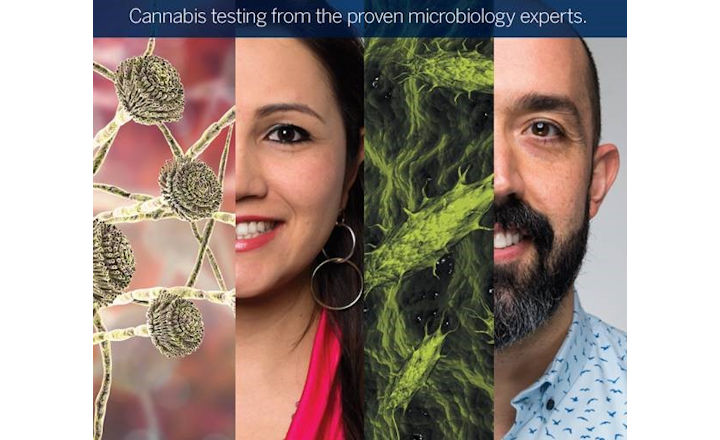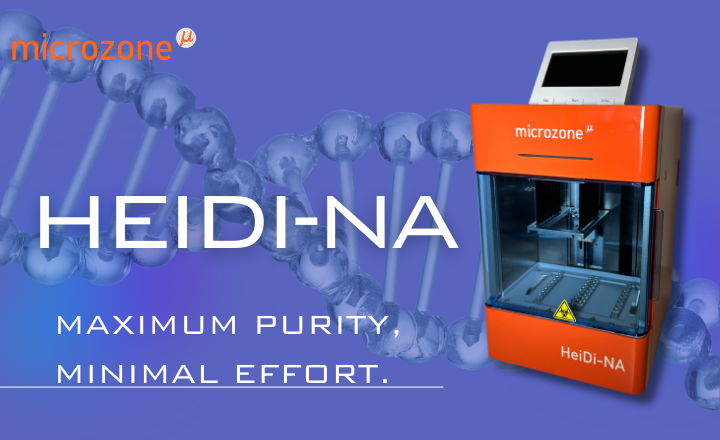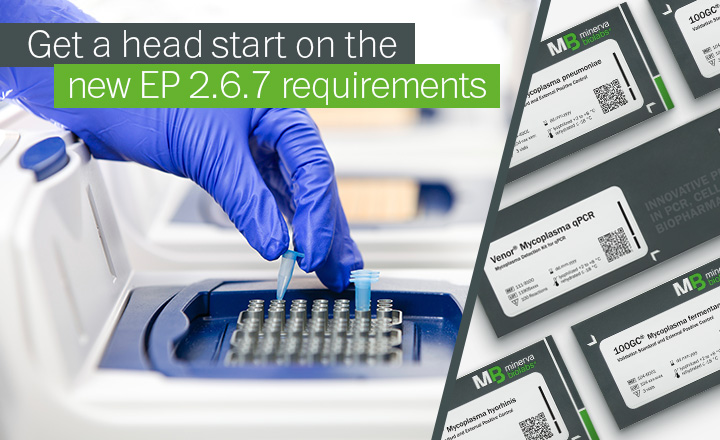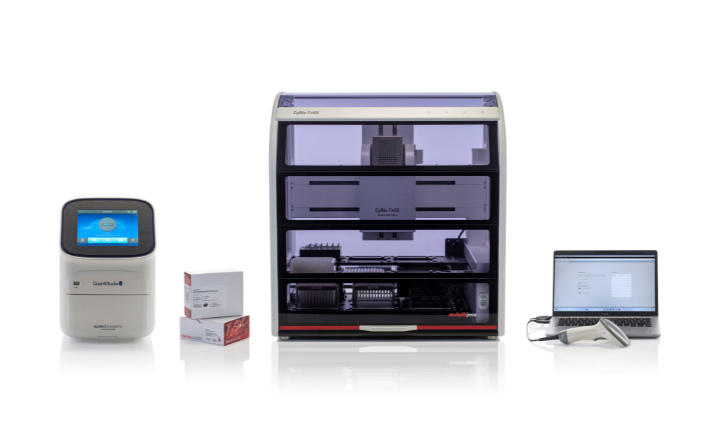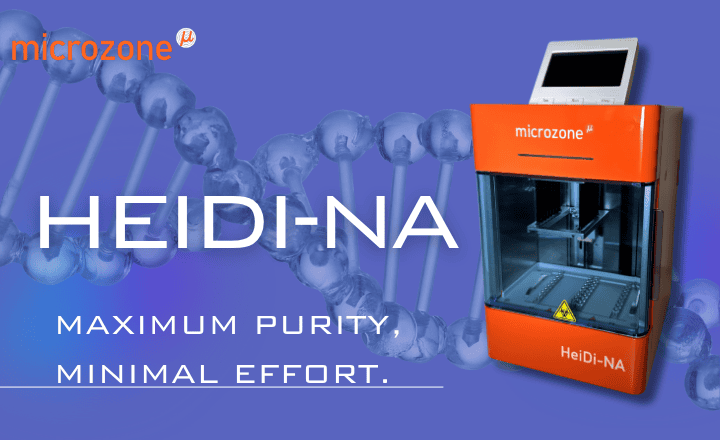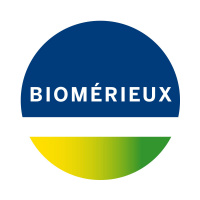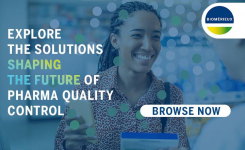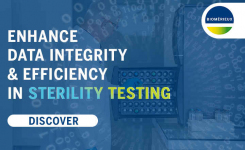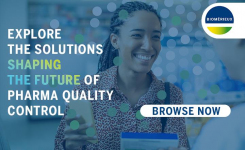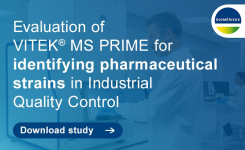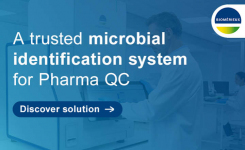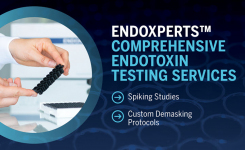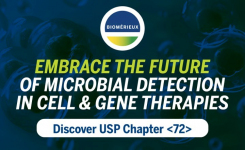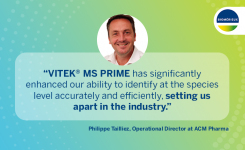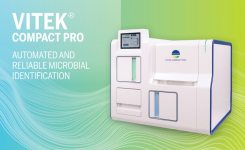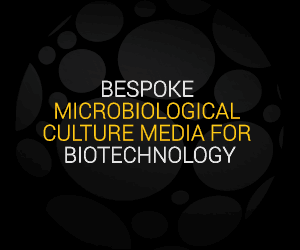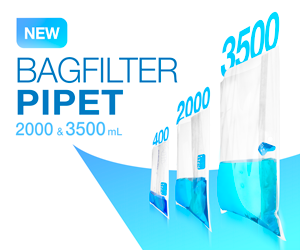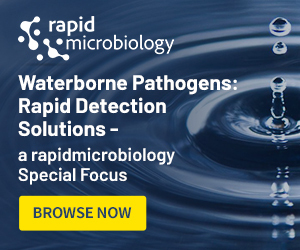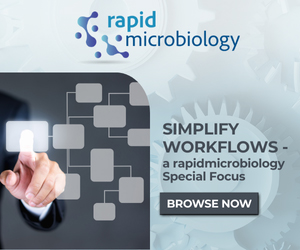Once a budding industry, now the winds of change have pollinated it to new areas. The legalization of cannabis in many states in the US, and countries around the world, has created a new market place for rapid microbial detection methods in the cannabis matrix. Yet, no federal regulation exists in the US, leaving each state to do its' own risk assessment and regulation.
Getting a foothold in this market requires developing assays that stand out from the rest, that are faster without compromising on accuracy, and comply with state regulations.
In this rapidmicrobiology interview with Ben Pascal, Chief Business Officer at Invisible Sentinel and Maria McIntyre, Business Development Manager in Plant Agriculture at bioMérieux, we discuss common misconceptions on Aspergillus testing, the Invisible Sentinel/bioMérieux's GENE-UP Aspergillus PRO assay's disruptive technology and how an ear to the ground in this industry will keep you one step ahead.
Q. Why is Aspergillus testing important for cannabis and cannabis-related products?
Ben: It's an important human health factor because a lot of these products are smokable. Aspergillosis, for example, is caused by inhaling a pathogenic strain of Aspergillus, that damages the lungs and can be fatal. Many consumers of cannabis are immunocompromised and using it as medicine. However, they are more susceptible to Aspergillosis, which might happen if they inhale a contaminated cannabis product. Therefore, Aspergillus testing is critical for these products.
Q. In your opinion, why have some states opted to test for Aspergillus and others not?
Ben: It depends on the maturity of the cannabis market in that state because each state writes its own regulation. For instance, in the state of Pennsylvania, in the early days of writing up the regulation, smokables were illegal, and only typical medicinal consumables were allowed, e.g. pills.
But now that smokables are permitted, laboratories licensed to test cannabis in that state, have reached out to us, as they are getting requests from the cannabis vendors to test for Aspergillus, even though it hasn't come into regulation yet. A lot of states learn and adapt from California, which has one of the most mature cannabis markets in the world and do test for Aspergillus.
Maria: We are receiving requests for our GENE UP Aspergillus test kit from all over the US, even states that do not require Aspergillus testing, because these laboratories and vendors want to show proper diligence, and ensure the product is safe for consumption.
Q. Are some strains mores susceptible to Aspergillus growth than others?
Maria: Aspergillus is a fungus, and is commonly found in the environment, especially soil where it strives on organic debris. So, the difference between cannabis used for medicinal purposes and the cannabis used for recreational purpose isn't in the product; it's in the level of risk to the consumer. The safety of the product needs to be of concern, regardless of its intended market, i.e. medicinal or recreational.
Ben: I don't think there's a particular strain, that's more susceptible to Aspergillus growth, but more related to the actual processing of the product that can allow colonization. If you have a well-controlled environment, and you're bringing in a wet product, the drying process is critical. If this step is not performed competently, then Aspergillus spores, are going to germinate, grow and contaminate your product.
This industry needs to be regulated like the food industry, so small-growers, for example, are processing in a well-controlled manner, thus reducing the risk of Aspergillus contaminating their products. For instance, during last year's California's wildfires, utility companies were doing 'brownouts'; deliberately turning off the electricity to reduce fire risks. This subsequently caused drying rooms to lose power. And we saw a significant spike in Aspergillus positive samples at testing labs because this critical step in the reduction of Aspergillus was not carried out effectively.
Q. How can the GENE-UP® Aspergillus PRO Screening and Upfront Speciation Kit benefit the industry?
Maria: If we don't look for something we don't know if it's there. Knowing your environment and taking control of your process is critical in ensuring a high-quality product. The Aspergillus Pro assay on the GENE-UP® system is easy to use. It can be implemented, not only in laboratories but in grow operations too and any type of processing facility due to the simplicity of the assay.
Q. How does the GENE-UP® Aspergillus PRO Screening and Upfront Speciation Kit compare to other testing platforms on the market?
Ben: We at Invisible Sentinel, and bioMérieux, are not in the business of putting just another assay out there; this is a disruptive technology to the industry. There is a small handful of other diagnostic systems that play in the cannabis and hemp arena, so we had to develop an assay that added significant value and made us stand out.
Here's how we differ:
- There is an enrichment step, like our competitors, but it's a single enrichment step and works for any cannabis product. Unlike other assays on the market, with different protocols for wax, tinctures, whole flower and oil: our assay has just one standard protocol making it very easy for the technician.
- The second differentiating factor is that we can go from a crude sample to the first step of PCR in 3 minutes. Cannabis is a dense plant matrix, and therefore an excellent inhibitor to diagnostic systems, affecting its accuracy and can cause false positives. With many of our competitors' tests, they require a purification and extraction step that can take up to one hour for the same function our assay can do in 3 minutes, without any loss in sensitivity or specificity and still meets standards for presence or absence. In fact, our assay post-enrichment has a sensitivity of 5 x 103, whereas many molecular assays on the market have an average 1 x 104 sensitivity.
- The third factor is that our assay speciates in one tube as opposed to other kits on the market, where you need to run a separate speciating test after receiving a positive result for Aspergillus. With our test, the enrichment culture is put into one tube, and the system displays species results on-screen, i.e. if it's A. fumigatus, A. terreus, A. flavus, A. niger, or nothing at all.
We launched it in February of this year, and already we have multiple labs adopting the kit, displacing our competitors' assays in those labs.
Q. How have you achieved this level of species specificity in the Aspergillus PRO assay?
Ben: To make a better molecular assay, you need to start with the sequences and subsequent primers, used for detection. You are only as good as your primers, if your primers cross-react with other organisms, e.g. non-target Aspergillus, you get a lot of false-positives.
Rather than re-inventing the wheel and doing our sequencing of these pathogens, we went to the experts and partnered with Westerdijk Fungal Biodiversity Institute. They are hands-down the world leader in Aspergillus and fungal research. We acquired the sequences from them to build the primers.
We've got a robust inclusivity (false-negatives) and exclusivity (false-positives) profile, which is attributed to that partnership with Westerdijk, giving us a significant leg-up on our competitors' assays.
Q. How would you go about replicating real-life contamination of Aspergillus on dried products for validation purposes?
Ben: A lot of our work is on dried products such as herbal supplements and spices, so we spiked cannabis the same way. We have an extensive library to allow us to spike with different Aspergillus species. We also have experience with working with control strains; LYFO DISK and KWIK-STIK from Microbiologics and NSI Labs' hemp standards that are pre-loaded with Aspergillus. We also have the ability in our BSL-2 facilities to culture, spike and look for detection; in comparison to the culture-based methodologies for food, where we would demonstrate equivalency to those standards.
Q. During the COVID-19 lockdown, cannabis and cannabis-related products were in high demand. Do you think the industry is prepared for its accelerated growth?
Maria: It's difficult to answer because every market is different. You can have one state that is more advanced to contend with higher demands than the emerging states. From the supply side of things, hindsight is always 20/20, and there are numerous precautions and steps we can take, not only in the supply chain but also to increase safety by having a controlled environment during production.
We need to be leaning on experts in core fields of science, such as chemistry and microbiology, for help in creating a safer environment in the interest of product safety and human health.
If you have an abundance of product out there that's not safe; you're in a worse position than when you don't have enough supply of a safe product.
Q. What needs to happen in the industry?
Maria: There's a need for harmony, with federally overarching regulations where everyone has to meet the same standards. We also need experts/thought leaders from other science disciplines, that can help the industry to go further and safer overall.
Ben: We see some growers and some labs do the right thing, but many of the others don't because there is no standardization across the US and no federal oversight. There are benefits in having full federal authority over the industry. It could provide additional revenue streams, especially when we are now in a position, where we need to restore and improve our economies due to COVID-19. Here's ample opportunity within the cannabis space, not only for the US but for global markets too, to help generate additional revenue that has utility for society.
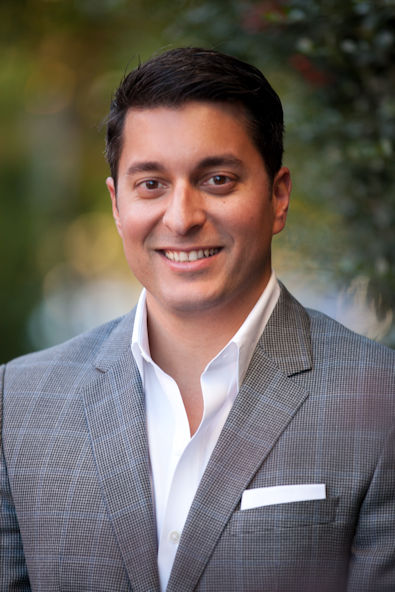
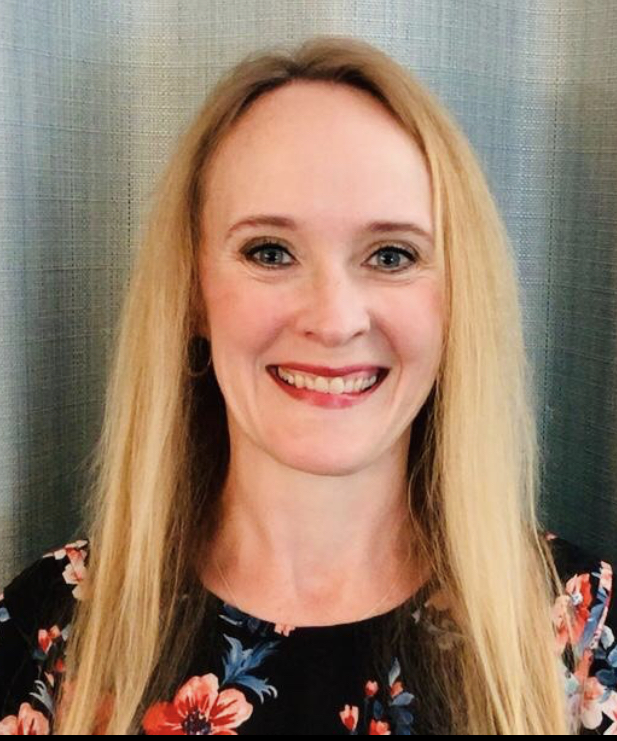
Maria McIntyre Biography: Maria is the Business Development Manager of Plant Agriculture for bioMérieux in the Food Safety & Quality Division. Over the last six years, Maria has led the cannabis and hemp industry for bioMérieux. Her passion is human health, safety, and serving the industry. Maria has held previous positions in Regulatory Compliance including Auditing and Quality System development in the Pharmaceutical industry. She has held positions in Microbiology, R&D, Product Development, Rheology, and Sales in the Food Industry. Maria is a graduate of the University of Nebraska holding degrees in Biology and Chemistry. She has experience in the cannabis and hemp industry, food and beverage industry, environmental and industrial hygiene, hematology, and pharmaceutical industry.


